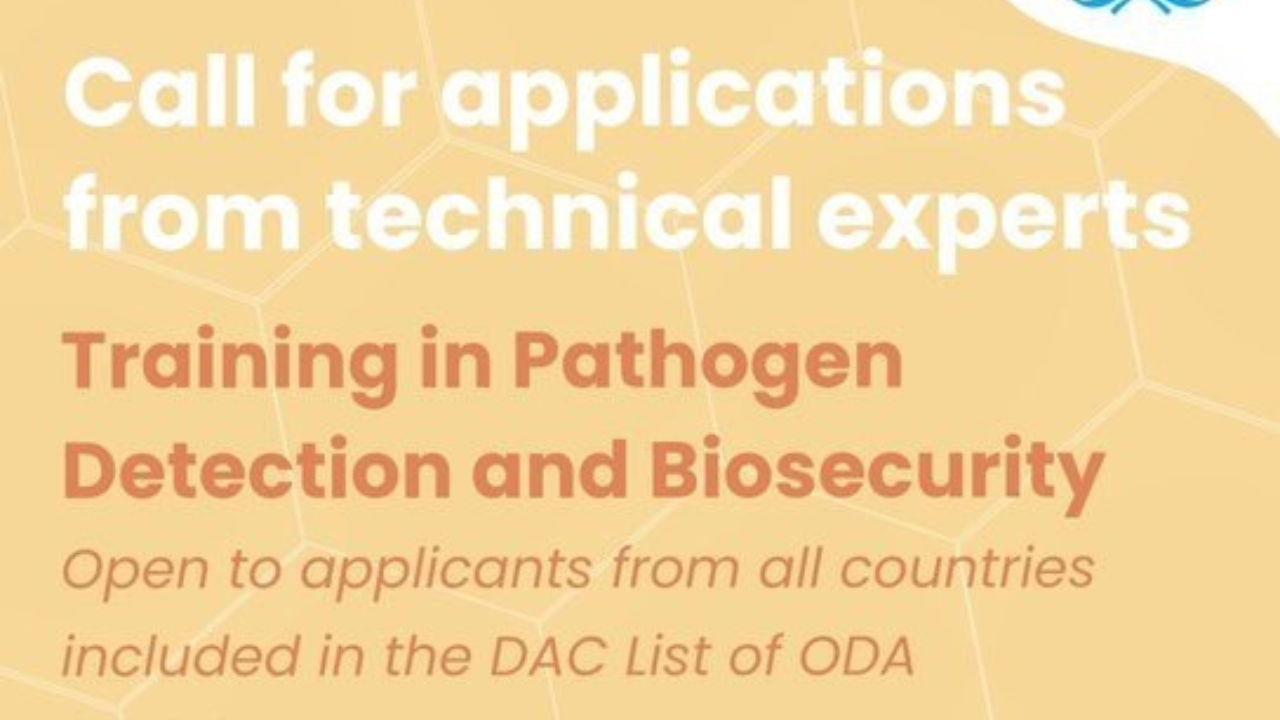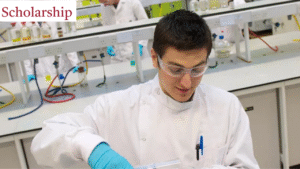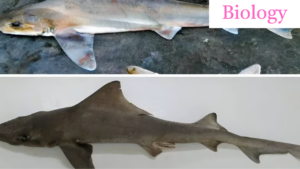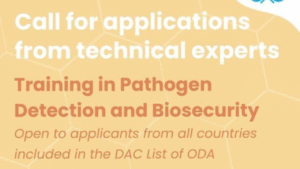Pathogen detection is the process of identifying disease-causing agents, while biosecurity is the system of measures to prevent their intentional or negligent release. These two fields are critical for public health and preventing bioterrorism, relying on technologies like molecular diagnostics (e.g., qPCR) and CRISPR-based systems for fast and accurate identification and biosecurity protocols for the safeguarding of dangerous materials and information. Together, they form a crucial defense against pandemics and deliberate attacks. The Biological Weapons Convention Implementation Support Unit (BWC ISU) is pleased to announce the third edition of the training course on “Pathogen Detection and Biosecurity,” which is organized in partnership with the International Centre for Genetic Engineering and Biotechnology (ICGEB).
This intensive five-day training is funded by a voluntary contribution from Norway in support of Article X of the BWC. The training aims to strengthen technical expertise in the peaceful application of biological sciences and technologies and raise awareness on the governance of Dual-Use Research of Concern (DURC). It is designed to enhance participants’ knowledge and practical skills through lectures, tabletop exercises, and hands-on laboratory sessions.
Organisers
The Biological Weapons Convention Implementation Support Unit and the Interantional Centre for Genetic Engineering and Biotechnology (ICGEB). This training course is for technical experts from developing countries listed in the DAC list of ODA recipients.
Objectives of the training
The objectives of the training include:
- Understand the Biological Weapons Convention (BWC)
- Strengthen the capacity of scientists, public health professionals, microbiologists, and molecular biologists in biosecurity, diagnostics, and outbreaks/pandemic preparedness within the context of the BWC
- Gain hands-on technical expertise in molecular diagnostics (qRT-PCR, LAMP)
- Acquire foundational skills in genomic surveillance and bioinformatics
- Engage in scenario-based exercises to simulate outbreak response and decision-making
- Build an understanding of biosecurity risk assessment and mitigation (insider and outsider threats in laboratories, biosecurity risk matrices)
- Understand the governance of Dual-Use Research of Concern (DURC)
Who Can Apply? Applicants should meet the following criteria
Professional Background:
Early/mid-career scientists with a background in virology, microbiology, or related biological sciences (e.g., researchers, laboratory personnel)
The training is targeted at early/mid-career scientists with a background in virology, microbiology, or related biological sciences (e.g., researchers, laboratory personnel) in the field of human, animal, or plant health. Applicants need to have demonstrated hands-on experience in molecular biology or pathogen diagnostics, currently working in at least a BSL-2 laboratory or similar facility, and have demonstrated experience with PCR, diagnostic equipment, and materials. Furthermore, applicants must possess a working knowledge of English. Female applicants are particularly encouraged to apply.
Technical Skills & Experience:
- Demonstrated hands-on experience in molecular biology or pathogen diagnostics
- Currently working in at least a BSL-2 laboratory or similar facility
- Demonstrated experience with PCR, diagnostic equipment, and materials
Additional Requirements:
- Working knowledge of the English language is mandatory
- Female applicants are encouraged to apply
- Only applicants from countries listed in the DAC list of ODA recipientswill be considered
Important Notice
- Applicants are required to provide a letter of recommendation from their employer confirming institutional support for theirapplication and explaining how the training will benefit the institution and national capacities.
- The BWC ISU will seek the endorsement of the selected applicants by their respective relevant national authorities (e.g., BWC National Contact Point, Ministry of Foreign Affairs, or Permanent Mission).
- Selected participants will receive financial support for their air travel expenses and a daily subsistence allowance, in accordance with the Financial Regulations and Rules of the United Nations. Sponsorship for the selected participants is provided through a voluntary contribution from Norway, in support of Article X of the Biological Weapons Convention.
- Selected participants are responsible for any insurance coverage that may be necessary, appropriate, or desirable for their participation in the training course, including but not limited to health insurance and travel insurance.
Applicants must register online for the training via the following link by Friday, 3 October 2025.
Application Link
Source: International Centre for Genetic Engineering and Biotechnology (ICGEB)










